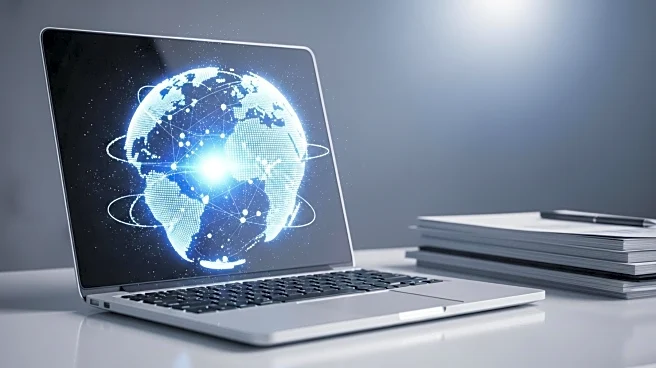What's Happening?
President Trump has proposed significant changes to the H-1B visa program, including a $100,000 fee for each foreign employee hired by American companies. This move has caused confusion and concern within the tech industry, which heavily relies on skilled worker visas. The H-1B program allows U.S. employers to hire foreign employees in specialty occupations, but Trump's changes could disadvantage entry-level foreign workers and impact innovation. Experts argue that while the program may need reform, Trump's approach could hinder economic growth and reduce the flow of young talent to the U.S.
Why It's Important?
The proposed changes to the H-1B visa program are crucial as they could significantly impact the U.S. tech industry and its ability to attract global talent. The $100,000 fee may deter companies from hiring entry-level foreign workers, potentially leading to a decrease in innovation and economic growth. Additionally, the changes could signal an unwelcoming environment for top talent, prompting companies to look abroad for skilled professionals. This shift could affect the U.S.'s competitive edge in technology and innovation.
What's Next?
If implemented, Trump's changes could lead to a reduction in H-1B visa applications, particularly from entry-level workers. Companies may seek to employ more people in other countries, impacting the U.S. job market and economy. The tech industry may need to adapt by finding alternative ways to attract and retain talent. The broader implications of these changes will depend on how the industry and policymakers respond.
Beyond the Headlines
The proposed H-1B visa changes reflect broader immigration policy debates and their impact on the U.S. economy. They highlight the tension between protecting domestic jobs and fostering innovation through global talent. The changes could also influence international perceptions of the U.S. as a destination for skilled professionals.








